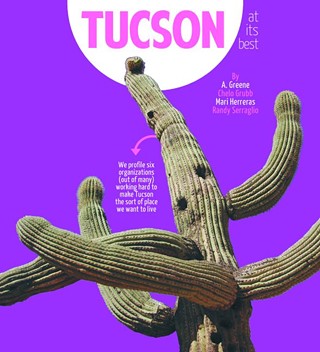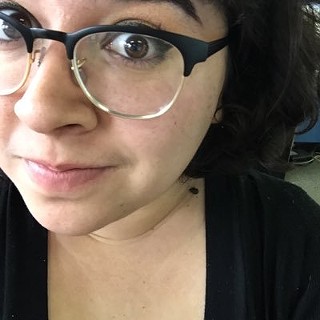Scholarships A-Z
Francisco Salcido graduated from Sunnyside High School in 2012 in the top three of his class. For his work, Pima Community College rewarded him with a two-year scholarship. But soon into his first year, the scholarship was taken away when his undocumented immigration status was discovered.
Sitting in a PCC Desert Vista campus classroom, Salcido says he remembers feeling devastated, yet he's continued to go to school at Pima and he owes that to Scholarships A-Z, a scholarship and student resource organization for all students in Arizona, but particularly students who are undocumented, like Tucson DREAMer Salcido.
Salcido says the organization, which just recently got its nonprofit status, started informally in May 2009 when a PCC student put together an extensive list of scholarships and other funding sources available to all students, regardless of immigration status. That list was shared with a PCC advisor and word got out as more and more students who came to the U.S. at a young age realized it would be difficult to go to college because they are undocumented and lack the Social Security number needed for certain grants and some scholarships.
Salcido says the organization locally, as well as in the rest of Arizona, Georgia and California, is mostly run by student teams. Those teams go to area high schools to help students, citizen and noncitizen, learn about the resources available to help get to college. The team, Salcido says, consists of about 17 students in the area and they are like a family, working together on obtaining resources and tackling DREAMer issues.
"Those resources are on our website and we go to schools to do presentations—how to apply for scholarships, how to apply to college," he says.
"Aside from most organizations that are out there more focused on immigration issues and immigration actions, we are more focused on education. When we started, our main focus was on resources and we were a force in getting PCC to change its policy to allow DREAMers in-state tuition."
So far, Scholarship A-Z has helped area students get about $47,000 in scholarships, and that doesn't include the hundreds of students the organization has helped through its outreach.
As Salcido and his fellow team members continue to raise money for scholarships—the group has an annual dinner, and with the nonprofit status it's easier to accept and ask for donations—there is another fight on the horizon that concerns team members. Arizona Attorney General Tom Horne filed suit this year against Maricopa Community College challenging its decision to allow DREAMers in-state tuition. It was the first college in the state to do so, and inspired PCC's governing board to make a similar decision. And it inspired DREAMers to continue to put pressure on the Arizona Board of Regents to do the same for undocumented students at the state's universities.
"The situation right now is really difficult. If Maricopa loses we automatically lose because we have the same policy," Salcido says. "We've been meeting with the board and asking them what they are doing—pushing them to keep fighting and thanking them for their decision. Our chancellor said he's willing take it further to action and willing to go to the Supreme Court to fight."
This year's Scholarship A-Z annual dinner was the first year the organization raised a substantial amount—more than $10,000, Salcido says. That money will go to help pay for conferences, travel expenses and other needed resources, and a micro-loan program for team members. One goal is to organize a state DREAMer conference for teachers and counselors. One has taken place in San Francisco, but Salcido says another must take place in Arizona.
"When I was in high school my teachers and counselors didn't know what to do with me when I told them I was undocumented," he says. "We need to help them understand what to tell their undocumented students, what resources are available and that they can help their students get to college."
— Mari Herreras, mherreras@tucsonweekly.com














